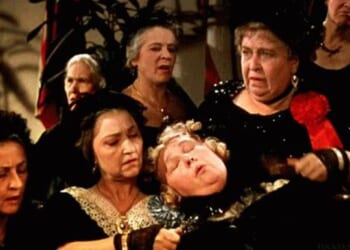The subject of chlorinated – chlorine washed/rinsed – chicken is like the proverbial bad penny whenever trade deals with the United States are discussed and many are on the record regarding it.
As someone whose working life was spent in standards and specifications, my primary concern is ends not means.
It’s extremely important that products are clean and uncontaminated, but there are essentially two ways of achieving this: stop contaminants getting in during processing or clean them out at the end. Sometimes, of course, they’ll be combined.
The US is a very legalistic country, which makes people and institutions cautious. When visiting I noticed frequent 25mph speed limit signs in urban areas; here the limit is a default 30mph (technically where there are regular street lights) and isn’t signed. I realised that it was to prevent legal action by those who’d received speeding fines claiming that they weren’t aware of the limit.
This gives confidence in the US that food standards as consumer illness, or even death, would be punished extremely harshly in the courts. When I travel to the States there are things I may not like – iced tea or coffee is terrible! – but I have no concerns about food hygiene.
We’re not as legalistic, yet, but caution is still applied.
It may not be immediately obvious but British consumers don’t decide what they eat, the supermarkets do.
Any high street supermarket offers a wide variety of products, both British and imported, but there are delicacies we may encounter when travelling even the short distance to France that are unavailable here. Simply because the supermarkets don’t believe they’d be profitable.
Their business model is to sell very large quantities and make a small profit on each which means they’re set up for a one way flow; products are delivered to the rear of the store and customers take them out the front.
Anything returned by a customer costs them both financially and, potentially, reputationally so they seek to minimise this by carefully monitoring suppliers, irrespective of where they are. Acceptance of chlorinated chicken wouldn’t guarantee its availability in supermarkets. It would be a commercial decision taking into account factors including price and quality.
It’s sometimes difficult to work out exactly what the aims of those opposing things like chlorinated chicken are. There may well be validity in seeking security of supply or being concerned about animal welfare standards (factory farming vs free range), but much looks like a smokescreen to try and disguise their main objective of protecting local suppliers from competition.
It’s uncertain what the effects of allowing chlorinated chicken would be.
We don’t know if any supermarkets would stock it and, if they did, whether it would sell in sufficient quantities to be viable.
Can chicken be considered as “strategic”? The answer is probably not.
Were sales to take business off British suppliers could they switch to something else? Probably.
Donald Trump is a bully in charge of the world’s largest economy and we have to deal with that. The nature of the US means that things like chlorinated chicken are relatively low risk and approval doesn’t necessarily put it on our dinner plates.
If approving chlorinated chicken, perhaps appropriately labelled as Farage suggested, would help towards securing a trade deal with the US it looks like a road that we – and the chicken – should seriously consider crossing.


![NYC Tourist Helicopter Falls into Hudson River, Siemens Executive and Family Among Those Killed [WATCH]](https://www.right2024.com/wp-content/uploads/2025/04/NYC-Tourist-Helicopter-Falls-into-Hudson-River-Siemens-Executive-and-350x250.jpg)






![Red Sox Fan Makes the ‘Catch of the Day’ with Unconventional ‘Glove’ [WATCH]](https://www.right2024.com/wp-content/uploads/2025/04/Red-Sox-Fan-Makes-the-‘Catch-of-the-Day-with-350x250.jpg)
![Green Day’s Cringe Trump Diss Ends in Fire and Evacuation [WATCH]](https://www.right2024.com/wp-content/uploads/2025/04/Green-Days-Cringe-Trump-Diss-Ends-in-Fire-and-Evacuation-350x250.jpg)






